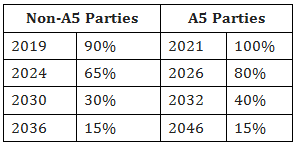The Doha talks this week, particularly in the Subsidiary Body on Scientific and Technical Advice (SBSTA), have discussed greenhouse gas emissions from international aviation and maritime transport. In particular, the question is whether these emissions are best addressed within the UNFCCC framework or by the relevant specialist international organizations: the International Civil Aviation Organization (ICAO) and the International Maritime Organization (IMO).
Under Article 2(2) of the Kyoto Protocol, the Annex I Parties agreed to pursue reductions in emissions from “bunker fuels” (the fuels used in international aviation and shipping) through the IMO and the ICAO. Neither the IMO nor the ICAO has yet implemented a global scheme to reduce emissions from bunker fuels. Prior to the opening of the current Conference of the Parties (COP 18) to the UNFCCC in Doha, the IMO and ICAO reported to the SBSTA on their work in this area. At its 37th Meeting the ICAO Assembly decided to “explore a global [market-based mechanism] scheme for international aviation” emissions (ICAO Assembly Resolution A37-19). At the ICAO Council meeting of November 9, 2012, the members of that organization agreed to make significant progress towards such a market-based mechanism by Fall 2013. The 64th Meeting of the IMO’s Marine Environment Protection Committee requested further studies of greenhouse gas emissions from shipping on which to base further discussions of market-based mechanisms, as uncertainty exists in current projections.
At the opening meeting of the SBTSA on Tuesday, November 27, Japan and Singapore both stated that the ICAO and IMO were the proper bodies to be addressing these issues, rather than the UNFCCC. One point of contention among parties to the UNFCCC was whether the principle of “common but differentiated responsibilities” should apply to international aviation and shipping. Many developing countries and major emerging economies, including Brazil, China, Egypt, Malaysia and Saudi Arabia argued that the principle should be applied in any scheme designed to reduce emissions in these two sectors. On the other side, Japan argued that global regulations should apply to all aircraft and all ships, regardless of their flag country or base of operations.
In the background to these talks on multilateral regulation of aviation and shipping, significant developments have been taking place in relation to unilateral efforts by the EU to reduce aviation emissions. In light of progress in negotiations at the ICAO, the EU has decided to suspend the operation of the its Emissions Trading Scheme (ETS) in relation to international flights until 1 January 2014. According to the decision, the ETS will continue to apply to flights operated entirely within the EU, the European Free Trade Association or the European Economic Area.
The inclusion of international aviation in the EU ETS had been highly controversial. Earlier this year Congress passed a Bill, the European Union Emissions Trading Scheme Prohibition Act of 2011 (known as the “Thune Bill” after Senator John Thune) which requires US airlines to be excluded from any fees imposed under the EU ETS. President Obama signed the Thune Bill into law on Tuesday, November 27, the same day that the role of the ICAO in international climate change policy was being debated in Doha.
For more information on the opening session of the SBSTA, see: https://www.iisd.ca/download/pdf/enb12557e.pdf




